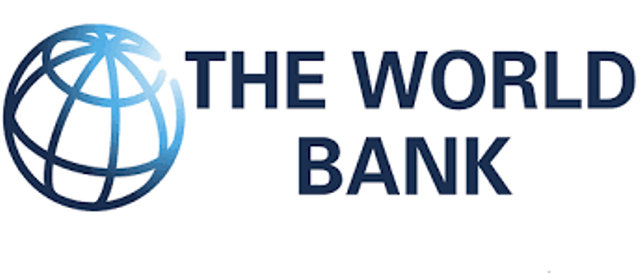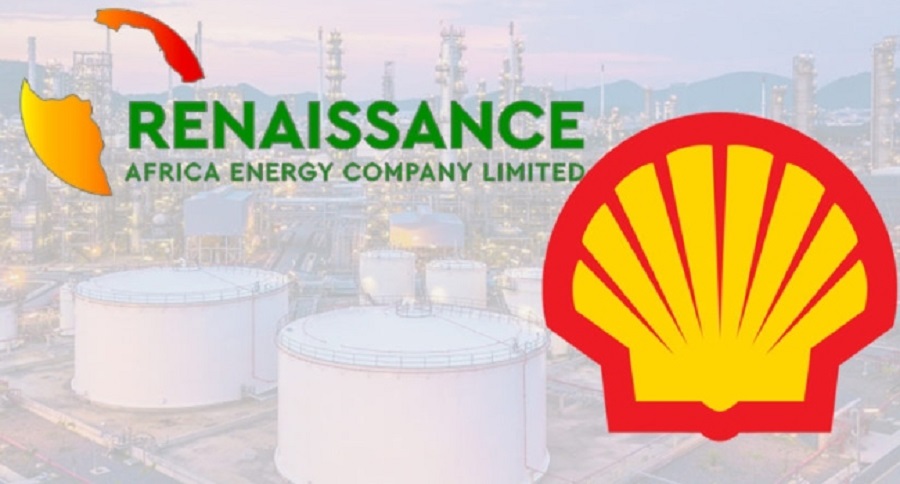News
World Bank says Underdeveloped Broadband Infrastructure Hampering Nigeria’s Digital Economy

The World Bank says Nigeria’s digital economy plan is being continually hampered by an underdeveloped fixed broadband infrastructure.

The global bank disclosed this in its ‘Nigeria Development Update: Time for Business Unusual’ report.
According to the bank, Nigeria’s digital economy can transform economic activities and improve government efficiency.
The World Bank said, “Nigeria’s digital economy can transform economic activities by unleashing new productivity gains, offering new services, and improving the government’s efficiency.
“It can also lead to greater citizen engagement, rebuilding trust and enabling access to service.
“Nigeria has the potential to accelerate its digital transformation by leveraging its relatively strong mobile broadband infrastructure, expanding e-commerce markets, and growing digital financial services.
“However, Nigeria continues to face significant challenges which have hindered the country’s ability to reap the full benefits of the digital economy.
“One leading barrier is Nigeria’s underdeveloped fixed broadband infrastructure, which is attributable to high federal and state taxes and an insufficient wholesale regulatory regime.
“This weak infrastructure base creates a ripple effect across the economy, contributing to low levels of financial inclusion, and persistent geographic and gender gaps in access to and use of digital technologies.”
The bank added that the ongoing security crisis in the North had increased these challenges.
It said, “However, Nigeria is only capturing a fraction of its digital economy growth potential.
“Minimal fixed broadband infrastructure and a lack of accessible and affordable connectivity in rural areas are exacerbating the digital divide.
“The country also faces several additional challenges, including suboptimal management of its telecom and power networks, security, and transparency issues, and constraining fiscal policies.”
According to the global bank, digital technologies have the ability to transform all aspects of the economy, as they lower the cost of economic and social transactions for firms, individuals, and the public sector.
The World Bank added that the nation shouldn’t just focus on the information and communication technology sector, as the digital economy referred to a modern economy enabled by digital technologies.
The bank said because the nation had the largest mobile market in Sub-Saharan Africa, improving digital platforms had the potential to connect governments, businesses, and consumers, create market efficiencies and reduce entry barriers.
According to the bank, e-commerce is one of the biggest strengths of Nigeria’s digital ecosystem.
It said in 2018, e-commerce spending in Nigeria was estimated at $12bn and was projected to increase to $75bn in revenues by 2025.
The global bank said a 10 per cent increase in mobile broadband penetration could lead to a minimum of 0.8 per cent growth in GDP in other regions of the world, and 2.46 per cent growth in Africa.
The report said, “To deliver on the 2030 aspirations of greater access to the digital economy and to meet the bold EGRP’s objective of lifting 100 million Nigerians out of poverty, the government needs to continue to strategically invest in the foundational elements of its digital economy.”
According to the global bank, Nigeria needs about 120,000 to 167,000 kilometres of fibre infrastructure, in addition to its existing 55,000kms, at a cost of $3.4bn. The bank added that this amount included about $870m in fibre deployment costs plus an estimated $2.5bn for 10 years (DCF) cost of Rights of Way fees.
The bank said, “If Rights of Way fees charged by all states are reduced to N145 per metre, then the cost of this dark fibre deployment including RoW fees would decline dramatically from $3.4bn to $1bn, as the DCF of 10 years of RoW fees would decline from $2.5bn to about $150m.
“Currently, the lack of an open-access wholesale network, combined with ineffective wholesale access regulation, varied Federal and State levies, and excessive rights of way fees, continues to hamper investments in the sector.
“Unlike West African peers, such as Ghana and Senegal, Nigeria does not have a pervasive, open access national backbone network through which high-speed Internet connectivity can be affordably extended across the entire country. As such, most telecommunications operators in Nigeria continue to self-provision their own infrastructure.
“This has resulted in unnecessary duplicative investments, with high-traffic intercity routes often having three or more fibre-optic links whilst others have none.”
The bank said about 63 per cent of Nigerians living in rural areas remained unconnected, compared to 40 per cent of people living in urban areas.
According to the bank, there is a north-south divide within the country, with southern states well ahead of northern counterparts in access within a household to mobile phones, and in terms of quality of service.
According to the World Bank, if Nigeria is to fulfil the potential offered by the digital economy, it must first improve its digital infrastructure.
It said, “Innovative solutions and strategic interventions and investments are required in order for Nigeria to gain the critical number of Internet subscribers needed to build its digital ecosystem and kick start its digital transformation”.
News
Abiola Adelana: Empowering African Creativity and Heritage Through Pashione

Abiola Adelana is a visionary leader whose career blends finance, culture, and innovation. With over 15 years of experience in banking and strategic development, she brings unmatched expertise to her role as Co-Founder of Pashione, an e-commerce platform dedicated to connecting Africans in the diaspora with authentic African fashion and heritage.

As the Tourism and Creative Arts Business Manager at Sterling Bank, Abiola has led groundbreaking initiatives to revive Nigeria’s tourism sector through sustainable financing. She is credited with establishing Sterling Bank as the first Nigerian financial institution to formally support the tourism industry, earning national and international recognition for her leadership.
At Pashione, Abiola is pivotal in shaping the brand’s strategy—bridging fashion, culture, and commerce to spotlight African designers and artisans globally. Her passion for African heritage and economic empowerment fuels her mission to create a platform that doesn’t just sell fashion but tells the story of Africa through every piece.
She is a proud member of the Domestic Tourism and Economic Development Working Committee, coordinated by the Nigerian Tourism Development Corporation (NTDC), and has earned multiple accolades, including:
- Culturati 100 Most Influential Personalities
- Adire Osun Brand Ambassador (appointed by the Osun State Governor)
- Rising Star Nominee – Pyne Awards Africa
- International Women’s Day Recognition for innovation in banking and tourism
Abiola is also a board member of Tourism Investment Africa, Solution17 for Climate Action and the Olowe of Ise Art Foundation (appointed by the Governor of Ekiti State).
Her academic background includes a degree in Economics from Obafemi Awolowo University, an MBA in Finance, and executive education at Harvard Business School, and she is a certified member of the Chartered Institute of Bankers of Nigeria (CIBN).
Through both Pashione and her work in the public and private sectors, Abiola continues to champion African excellence, sustainability, and creativity. She is committed to seeing Africa’s culture, fashion, and tourism take center stage on the global map.
News
World Bank Approves $1.08Bn Loan for Nigeria

The World Bank announced on Wednesday that it had approved a total of $1.08 billion in concessional financing for Nigeria to enhance education quality, build household and community resilience, and improve nutrition for underserved groups.

In a statement, the world’s largest multilateral development bank said that the loan is intended to help strengthen its extensive reach and impact in Nigeria in the face of economic hardships, especially in the wake of the Federal Government’s economic reforms in 2023.
According to the statement, the loan comprises $500 million in additional financing for the Nigeria Community Action for Resilience and Economic Stimulus (NG-CARES) Program, $80 million for Accelerating Nutrition Results in Nigeria (ANRIN 2.0), and $500 million for Hope for Quality Basic Education for All (HOPE-EDU).
Specifically, the statement said that the NG-CARES Program will support the Nigerian government in expanding access to livelihood support, food security services, and grants for poor and vulnerable households and communities.
The financing for ANRIN aims to increase the utilization of quality and cost-effective nutrition services for pregnant women and lactating mothers, adolescent girls, and children under five in select areas.
The new financing for HOPE-EDU will focus on improving foundational learning, access to basic education, and strengthening education systems in participating states.
It further stated that the NG-CARES Program was initially designed to respond to the COVID-19 pandemic and has since evolved into a shock-responsive platform providing multisectoral interventions for the poor and vulnerable.
Implemented at the subnational level across all 36 states and the Federal Capital Territory, the program stimulates the local economy through social transfers, labor-intensive public works, livelihood grants, basic community services, agriculture and food security interventions, and support to micro and small enterprises.
The additional financing will strengthen the program’s extensive reach and positive impact, underscoring the need for continued support in the face of economic hardships, including those from the 2023 fuel subsidy reforms and foreign exchange rate unification.
The statement noted that ANRiN 2.0, which aligns with Nigeria’s National Development Plan (2021-2025), the Multisectoral Plan of Action for Food and Nutrition (2021-2025), and the Nutrition-774 initiative, offers an evidence-based, multisectoral approach to combating malnutrition and food insecurity, focusing on maternal and child health, integrated nutrition services, and household food security.
It added that the program will increase the utilization of preventive and curative nutrition services, improve maternal and young child feeding practices and dietary diversity, increase access to micronutrient-rich foods, and provide essential nutritional support to vulnerable populations, mitigating the immediate risks of malnutrition and food insecurity.
The initial ANRIN program reached over 13 million children under five with nutrition services between 2018 and 2024.
For HOPE-EDU, which is part of a series of three interrelated operations alongside HOPE-Governance and HOPE-Primary Health Care, the program aligns with Nigeria’s Universal Basic Education program objectives and strategies.
HOPE-EDU will support structured pedagogy approaches to foundational literacy and numeracy, create learning opportunities where school overcrowding impedes participation, and adopt decentralized allocation and management of Universal Basic Education Intervention Funds, school management, and system information.
The program is expected to directly benefit 29 million children enrolled in public primary schools, 500,000 public primary teachers, and more than 65,000 public primary schools and their School-Based Management Committees.
The program will also receive co-financing in the amount of $52.18 million from the Global Partnership for Education Fund.
The statement quoted Ndiamé Diop, country director for Nigeria, The World Bank, as saying: “Investing in human capital is critical for Nigeria as it offers the best opportunity to unlock the enormous potential of the country.
“These new sets of programs will help Nigeria accelerate education quality and support vulnerable citizens.
“The HOPE-EDU program will enable better education outcomes by implementing bold reforms and making the right investments to equip the fast-growing young population with foundational skills and knowledge necessary for rapid and inclusive economic growth.
“Nutrition interventions from ANRIN will enhance household access to micronutrient-rich foods and nutrition services at the primary healthcare level, improve dietary diversity, and provide essential nutritional support to vulnerable populations, mitigating the immediate risks of malnutrition and food insecurity.
“The NG-CARES additional financing will support the Nigerian government in transitioning from responding to and recovering from the COVID-19 crisis to building household and community resilience.”
News
Shell, Renaissance Face Legal Action over SPDC Licence Transfer

A suit seeking to stop Shell Petroleum Development Company Limited’s deal transferring its mining licence to Renaissance African Energy Company Limited has been filed at the Federal High Court in Lagos.

The Incorporated Trustees of Human Environmental Development Agenda (HEDA) sued Shell Petroleum Development Company Limited, Renaissance African Energy Company Limited, the Federal Republic of Nigeria, and four others over the transfer of an oil exploration licence.
Other defendants are: Mr Lateef Fagbemi, attorney-general and minister for Justice of the Federation; the Nigerian National Petroleum Company Limited; the Nigeria Upstream Petroleum Regulatory Commission; and the Ministry of Petroleum Resources.
Renaissance Africa Energy Holdings, a consortium consisting of four Nigerian independent oil and gas companies – ND Western Limited, Aradel Holdings Plc, FIRST Exploration and Petroleum Development Company Limited, the Waltersmith Group, and Petrolin – recently completed the acquisition of the entire equity holding in the SPDC.
In the suit filed by Kunle Adegoke on behalf of the plaintiff, HEDA raised concerns about alleged non-compliance with Nigeria’s legal and regulatory frameworks governing the petroleum industry.
In suit number FHC/L/CS/651/2025, the group alleged that Shell’s sale of the onshore assets to Renaissance violated several Nigerian laws, including the Petroleum Industry Act 2021.
Key issues raised by HEDA include concerns over the legality, transparency, and regulatory compliance of the transaction.
The plaintiff asserted that the process failed to meet statutory provisions, including the requirement to conduct and disclose an Environmental Evaluation Study under the Upstream Petroleum Environmental Regulation, 2022.
The organisation argued that allowing the transaction to proceed without adhering to these legal requirements could set a dangerous precedent and undermine the national and public interest, particularly regarding environmental sustainability and the welfare of communities in the Niger Delta.
HEDA requested the court to declare that by sections 10 (f), 95 (11) and (15), 235, 237, and 238 of the PIA Regulations; 4.2.5, 5.2.4, 5.2.5 and 5.4 of the Guidelines for Obtaining Minister’s Consent to Assignment of Interest in Oil and Gas Assets, 2021; Regulations 7 and 8 of the Upstream Petroleum Environmental Regulation, 2022; Regulations 8(1) and (2), 9(1) and (2) of the Upstream Petroleum Environmental Remediation Regulations, 2024; Regulation 13(1) – (3) of the Gas Flaring, Venting and Methane Emissions (Prevention of Waste and Pollution) Regulations, 2023; Shell’s transfer of its oil exploration license to the 2nd defendant “is invalid, unlawful and not backed by the extant and enabling Laws of the Federal Republic of Nigeria.”
The organisation also wants the court to declare that, given the failure of the defendants to comply with the provisions of the various sections, the consent/approval given by the government to Shell in order to transfer/assign/divest its oil exploration licence to the Renaissance is unlawful, null and void.
The company’s spokesperson could not be reached for comments as of press time.
In March, Shell said it had completed the sale of SPDC to Renaissance, as announced on January 16, 2024.
The energy giant explained that the divestment of SPDC aligns with its intent to simplify its presence in Nigeria through an exit of onshore oil production in the Niger Delta and a focus on future disciplined investment in its deepwater and integrated gas positions.
Renaissance now controls SPDC’s 30 per cent stake in the SPDC Joint Venture, an unincorporated joint venture with the government-owned Nigerian National Petroleum Company Limited, Total Exploration and Production Nigeria Ltd (10 per cent) and Agip Energy and Natural Resources Limited (five per cent).

 News2 days ago
News2 days agoNIPSS Projects Petrol Prices to Hit ₦750/Litre Before Year’s End!

 E-Financial2 days ago
E-Financial2 days agoFidelity Bank Reports N385.2Bn Pre-Tax Profit for 2024

 E-Business2 days ago
E-Business2 days agoNIMC Says NIN Mandatory to Government Loans

 General News2 days ago
General News2 days agoFinancial Cyberthreats Report Reveals 3.6Ttimes Surge in Mobile Banking Malware

 News2 days ago
News2 days agoFG to Create 1m Technology Jobs – Minister

 E-Business2 days ago
E-Business2 days agoAfrica’s Data Workers are Being Exploited by Foreign Tech Firms – Report

 E-Financial2 days ago
E-Financial2 days agoPonzi Operators Risk 10-Year Jail Term, N20m Fine – SEC

 E-Financial2 days ago
E-Financial2 days agoNew Investment Law Empowers SEC to Obtain User Data from Telcos
























